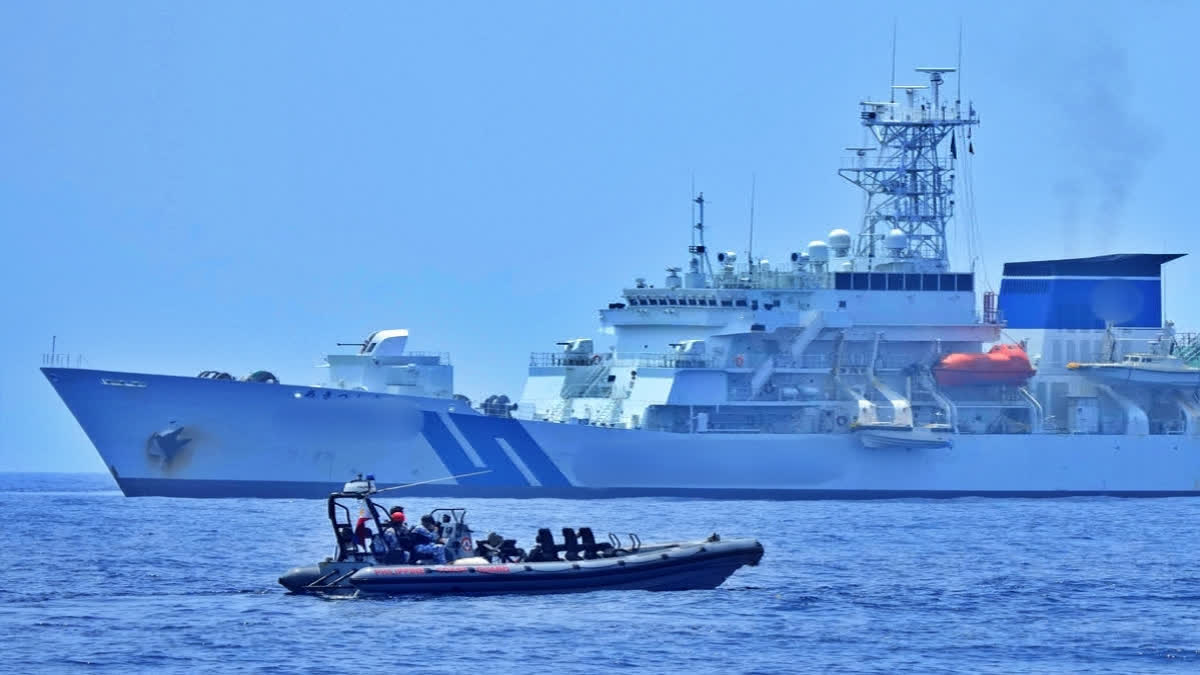New Delhi: In a development that will bring much relief to India in terms of security in the neighbourhood, Sri Lanka has decided not to allow entry of foreign research vessels in its waters for a period of one year.
Colombo’s decision comes after China made yet another request to allow one of its vessels, Xiang Yang Hong 3, to dock at a Sri Lankan port ostensibly for research work. India had reportedly voiced its concerns to both Sri Lanka and the Maldives about allowing entry to this vessel.
According to a report in the Daily Mirror newspaper, “amid geopolitical strain”, Sri Lanka has decided to have a one-year moratorium on allowing foreign vessels to conduct research in the country’s territorial waters. Foreign Minister Ali Sabry told the newspaper that the government had announced a 12-month moratorium on research vessels from any country starting from January next year.
“That is for us to do some capacity development so that we can participate in such research activities as equal partners,” Sabry was quoted as saying. India has strongly been protesting the repeated visits by Chinese vessels to Sri Lankan waters, a region New Delhi considers to be under its sphere of influence, ostensibly for research purposes.
In October this year, Sri Lanka’s foreign ministry granted permission for the Chinese research vessel Shi Yan 6 to engage in supervised marine research along its west coast for a two-day period. The vessel, initially docked in Colombo for “replenishments” amid apprehensions of potential espionage, was authorised for research activities under close monitoring. This decision was in response to India’s security concerns related to China’s growing presence in the Indian Ocean and its strategic influence in Sri Lanka.
The US too had voiced concerns about the visit of the Shi Yan 6 to Sri Lanka. During a meeting with Sabry on the sidelines of the UN General Assembly Session in New York in September, US Undersecretary for Political Affairs Victoria Nuland had raised this matter.
Sri Lanka is under pressure from Japan too on this issue, according to reports. India, the US and Japan, along with Australia, are part of a Quad that is working for a free and open Indo-Pacific in the face of Chinese hegemony in the region that stretches from the east coast of Japan to the east coast of Africa.
Earlier, in August this year, a Chinese ship claiming to be a research vessel docked at Colombo port ostensibly for replenishments. The Hao Yang 24 Hao actually turned out to be a Chinese warship. The 129-metre-long ship is manned by a crew of 138 and is commanded by Commander Jin Xin.
Last year too, India had strongly protested when a Chinese survey vessel called the Yuan Wang 5 was allowed to dock at the Hambantota port in Sri Lanka. Though the ship was described as a research and survey vessel, security analysts said that it was also packed with space and satellite tracking electronics that can monitor rocket and missile launches. The ship was permitted to dock by then-President Gotabaya Rajapaksa a day before he fled the country amid an economic crisis.
During his visit to India in July this year, Sri Lankan President Ranil Wickremesinghe had tried to assuage New Delhi’s apprehensions about the presence of Chinese naval ships in his island nation’s waters. Wickremesinghe said that his country has adopted a new standard operating procedure (SOP) to determine what kind of military and non-military ships and aircraft will be allowed to visit the country. The SOP was adopted following a request by India.
Now, according to the Daily Mirror report, Foreign Minister Sabry has said that the guidelines set under the SOP had been sent all the countries that deployed their vessels to Sri Lankan waters during the last 10 years.
Though Wickremesinghe claims that his country maintains an Asia-centric neutral foreign policy without getting involved in any major power rivalry, Colombo is compelled to maintain equally good relations with both New Delhi and Beijing due to external debt obligations and the economic crisis last year. But the fact of the matter is that Sri Lanka was unable to refuse China’s request for permission to allow its ships access to its waters because of Beijing’s huge investments in India’s southern neighbour.
Security in the Indian Ocean region has huge strategic implications. Not only for India, what Colombo does in terms of foreign policy and developments in Sri Lanka has wider implications for other major powers’ access to the Indian Ocean. Now, by adopting the SOP and sharing it with other countries, Sri Lanka, it seems, has found a way to check Chinese presence in its territorial waters.
Also read:
- Explainer: Why CMEC extension to Sri Lanka will get India worried
- Interview | Arresting Indian fisherman a 'political compulsion', says Sri Lanka fisheries minister
- Sri Lanka nearing debt restructuring: President Wickremesinghe
